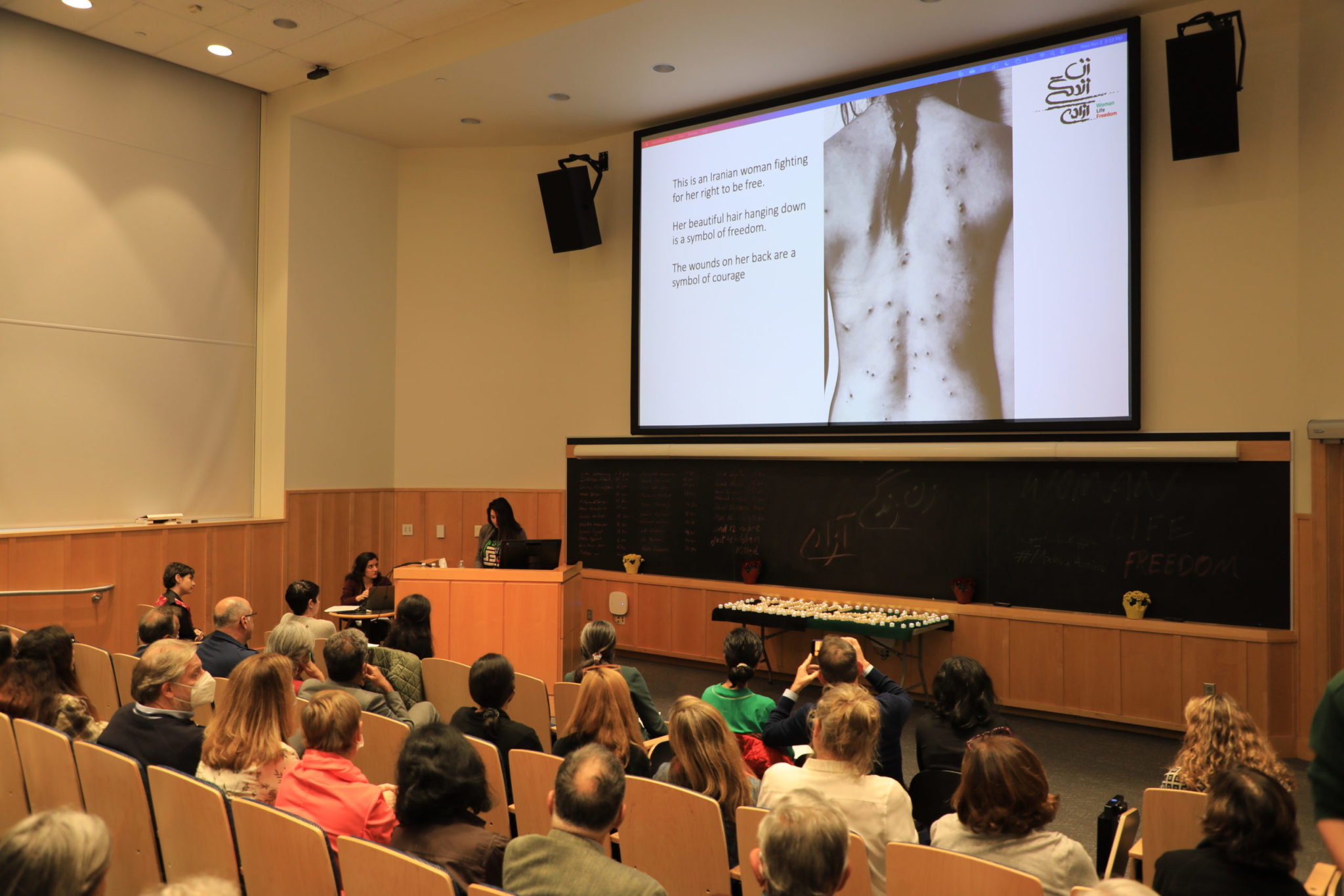Yale School of Medicine members host solidarity meeting for Iran
Students and faculty members at the Yale School of Medicine saw hundreds attend a solidarity meeting for the women and men losing their lives amid protests and government crackdowns in Iran.

Courtesy of the Yale School of Medicine
At ten years old, Associate Professor of Medicine Susan Kashaf cut her hair short and wore boys’ clothes so she could ride a bike freely on the streets of Iran. These little strategies that she grew up learning were not enough to save her from getting chased by the police, however — and one day, she found herself pedaling for her life.
Kashaf’s story was one of many shared during a Wednesday evening solidarity meeting at the University’s Anlyan Center auditorium. As protests and bloody government crackdowns ensue in Iran, Kashaf, along with several other members of the School of Medicine, came forward to urge the Yale community and beyond to stand in solidarity with the millions of women, men and children pedaling for their lives every day.
“We are Iranian-Americans … who have connected in the past month to support each other during these trying times,” Kashaf said, opening the event. “Some of us came from Iran decades ago, others months. We are here with you tonight to raise awareness [and] build community.”
The hour-long meeting featured speeches, spoken poetry and multimedia imagery. Videos and photographs showcased Iranian children studying in armed schoolgrounds — complementing speakers’ memories of tortured family members, of running in zigzag lines to avoid flying bullets and of hoisting a flag made of female hair at a New York rally to protest gruelling regulations on the hijab.
In a poem read aloud at the meeting, Kashaf’s daughter Leila Ruser centralized the uncertainty of finding home and having nowhere to turn. She described the simultaneous pain and freedom of distance and leaving Iran — how despite being thousands of miles away from the focal point of violence, she and her family yearn to speak up for those who remain trapped behind.
“Her country said goodbye in the form of a gutted stuffed animal on the airport conveyor belt,” Ruser wrote. “6,041 miles of uncuttable string and 37 years are not enough to sew the stuffing back in.”
Three words took center stage at the meeting: “Zan,” meaning woman; “Zendegi,” meaning life, and “Azadi,” meaning freedom and liberty. For the women who spoke at the event, these values, more than the hijab itself, are the driving force behind their relentless push for change. The conversation should be centered on the oppression that comes with enforcing the hijab, rather than on the article of clothing itself, the event organizers echoed.
At the front of the Anlyan auditorium was a table of candles meant to involve the audience in this commemoration — with yellow ones representing the adults who lost their lives and white ones representing children. Kashaf noted that between the time she ordered the candles and the start of the meeting, that number has only continued to climb. She encouraged participants to take home a candle as a form of honoring others.
At the conclusion of the meeting, organizers opened the floor to public testimonies and statements. There was an option to write down comments on a clipboard for those who were not comfortable with sharing their experiences out loud.
Helia Hosseini YSM ’26, a meeting attendee, noted that at the heart of the problem is a historic, complex and rooted oppression of Iranian women. She recalled the times when people told her to stop pursuing her dreams of becoming an American surgeon, sharing how some of her college professors in Iran even offered a “curve” to those who had active relationships with men.
She said that she looks forward to the day when Iranians, especially women, are given the opportunity to not “just survive, but also thrive.”
For some, this meeting is the first step in creating a more conscious, educated University culture.
Kashaf said that she is actively working closely with the University to raise more awareness about the Iranian protests and the stories of the people involved. She thanked Deputy Dean and Chief Diversity Officer Darin Latimore at the School of Medicine for supporting the event and looks forward to a growing circle of solidarity for Iranians.
“I hear my dreams in chants by Iranian women, men, women and children who scream their hopes in the streets,” said Narges, a speaker at the event who asked to keep her last name anonymous for safety reasons. “I hope for an Iran where justice and freedom are respected … and I dream that my people can live and die with dignity.”
The Anlyan Center is located at 330 Cedar St.







